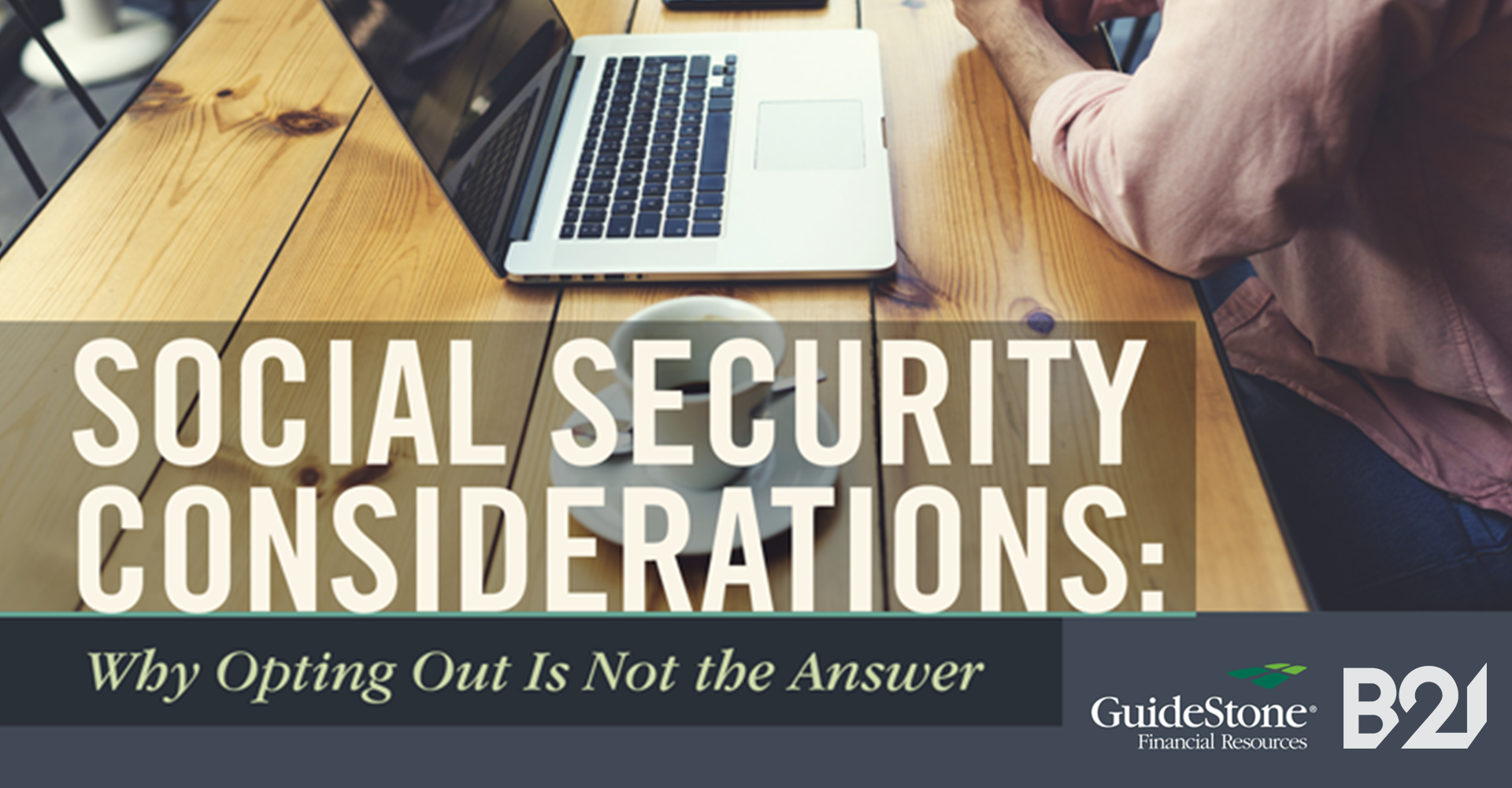A Decision of a Lifetime:
Four Reasons You Can’t Afford to Opt Out of Social Security
by Greg Love
During the first two years of your ministry, you will make a decision of a lifetime — whether or not to opt out of Social Security.
This is a hot topic in ministry circles today, and everyone has a personal opinion on the matter.
But what does it really mean to opt out of Social Security? And should you?
This isn’t a choice that should be taken lightly. In fact, according to the IRS, this irrevocable decision should be made solely based on your theological beliefs. Under penalty of perjury, you must certify opposition to Social Security on the basis of religious principles to the acceptance of public insurance.
In addition to the theological component, you need to consider the long-term financial impact of this decision and how it will affect your family.
For example, did you know that by opting out, you voluntarily forfeit:
- Federal retirement benefits?
- Subsidized Medicare when you reach age 65?
- Potential disability benefits?
- Survivor benefits for loved ones?
It’s important to make sure you are prepared to face the consequences accompanying your decision. So, let’s look at four reasons why you can’t afford to opt out of Social Security.
You will have to save more for retirement.
Instead of saving the recommended 15% of your income, you will need tosave more to make up for the loss of Social Security income. This means you will need to save more than 25% of your salary to cover this retirement income gap.
You will have to pay for all medical costs.
Even though you will not be eligible for reduced-cost Medicare benefits, you may purchase health care — just at a much higher rate. Coverage for two to purchase a Medicare replacement plan would cost roughly $10,000 annually — becoming a large expense during retirement.
You will be ineligible for disability benefits.
Without another safety net, you will need to purchase disability insurance to help safeguard your family’s financial well-being should an accident occur that prevents you from returning to work. This coverage may cost from 1%–3% of your salary, typically around $500–$1,500 annually.
You will be ineligible for family survivor benefits.
Forfeiting access to survivor benefits for your spouse and/or children in the event of your death means you will need to purchase more term life insurance than the average person. On average, a minimum of 5–10 times your salary is needed, particularly if there are school-aged children in the household.
To estimate the life insurance amount you will need, access GuideStone’s Life Insurance Calculator that considers current assets, expenses and income.
When it comes to opting out of Social Security, you can’t afford to make the wrong decision.
At GuideStone®, we specialize in helping ministers prepare for retirement. And in all my years of service, I can’t think of a single time when a minister has told me at retirement that he was thankful to have opted out of Social Security. Regrets are unfortunately much more common.
Please think long and hard before making a choice you may regret.
For more information and to read a more in-depth version of this article, visit GuideStone.org/DontOptOut.
Greg Love joined GuideStone® in 2012 and serves as the senior manager for Retirement Solutions, specializing in church retirement plan design and employee education. He holds degrees from both the University of West Alabama and Southwestern Baptist Theological Seminary and is currently pursuing a Master of Business Administration from Dallas Baptist University. Greg holds the Chartered Retirement Planning Counselor℠ professional designation, as well as Series 6 and 63 security licenses.
Greg is passionate about helping local churches thrive, make disciples and impact the globe for Christ. He and his wife, Jaime, have been married since 2001 and enjoy raising their two children — John Parker and Georgia Grace.

